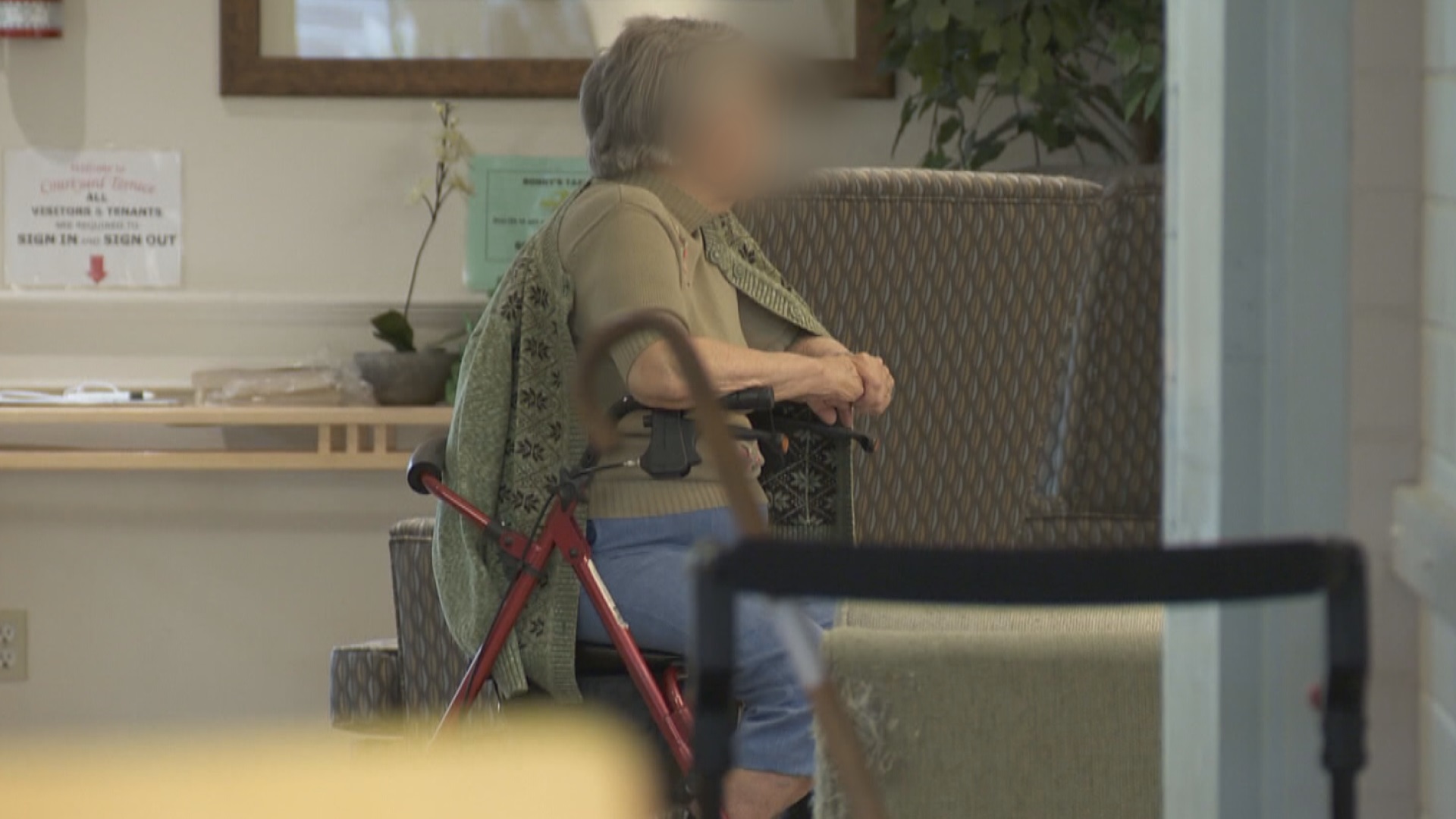How to politely say ‘back off’ during coronavirus outbreak

We’ve been told time and time again: practise physical distancing and stay at least six feet — or a pool noodle’s distance — away from others to help curb the spread of the novel coronavirus.
While health officials are urging Canadians to only leave the house for necessary reasons, like grocery shopping once a week, what happens when you step out into the world and people aren’t respecting your space?
You’re within your rights to politely ask for physical distance, says Allyson Harrison, an associate professor of psychology at Queen’s University.
“The first thing to do is not to lose your temper,” Harrison said.
“Because if you lose your cool, it allows the other person to write you off as someone who’s just emotionally unstable and then they can rationalize not taking you seriously.”
Craft a response
How you react to someone invading your personal space may depend on where you are and who is around.
If you’re picking up groceries or grabbing a prescription, for example, many stores have implemented markers on the floor indicating how far shoppers should keep apart from one another.
If someone starts to load their items onto a store’s conveyor belt while you’re still checking out, or they’re getting too close to you in an aisle, nicely ask them to wait.
“You can politely say, ‘Would you mind just being a little further away from me? We’re supposed to keep six feet away from each other. I’ll be done in just a minute,’” Harrison said.
Steve Joordens, a professor of psychology at the University of Toronto, says that it’s helpful to “craft a response” so you’re ready to respond to those who do not practise physical distancing.
[ Sign up for our Health IQ newsletter for the latest coronavirus updates ]
That way, Joorden said, you won’t react based on emotion.
Joordens suggests people prepare a respectful go-to line, which should clearly let someone know they’re not physically distancing.
Tell the person their closeness makes you uncomfortable, he said, which is a health threat to you and others.
It’s also wise to prepare for how someone may react.
“Hopefully, they say, ‘Oh, my goodness, I’m sorry. I wasn’t thinking.’ And that’ll be great,” he said.
“But they may react and say, ‘Oh, what are you, some sort of a weenie?’ In a lot of those situations, I think the right thing to do is turn your back and walk away, if you can.
“We’re all so raw emotionally right now — it’s very easy for something to spin out of control.”
Watch your own behaviour
In an ideal world, everybody respects physical distancing. But because not everyone does, you might need to change your own behaviour, Harrison says.
If you’re on the sidewalk, for example, and spot a couple who are not distancing from others, change routes or cross the street.
In grocery store settings, Harrison says you might want to go down a different aisle until the space you need is clear if you’re worried about others overstepping boundaries.
If someone is really putting others in harm’s way, you may need to ask a grocery store worker to step in, she says.
Know it’s OK to feel anxious
The coronavirus pandemic has affected everyone and changed the way most of us carry out our daily lives. Experts say it is completely OK — and normal — to feel anxious during this uncertain time.
“Being quarantined, being isolated and not being able to go out and physically interact with people is really tough,” Harrison said.
“It’s really anxiety-producing and stressful for people — especially for people who live on their own or don’t have someone with whom they can share that sort of physical closeness with.”
Joordens said it’s important people learn to manage their anxiety and work through the uncertainties around the pandemic. He even launched a free online course on managing anxiety during the COVID-19 outbreak to help folks do just that.
“We have to now learn to manage it because if anxiety goes unbridled for too long, it starts to compromise our immune systems — and that’s not good — or it can morph into depression,” he said.
Questions about COVID-19? Here are some things you need to know:
Health officials caution against all international travel. Returning travellers are legally obligated to self-isolate for 14 days, beginning March 26, in case they develop symptoms and to prevent spreading the virus to others. Some provinces and territories have also implemented additional recommendations or enforcement measures to ensure those returning to the area self-isolate.
Symptoms can include fever, cough and difficulty breathing — very similar to a cold or flu. Some people can develop a more severe illness. People most at risk of this include older adults and people with severe chronic medical conditions like heart, lung or kidney disease. If you develop symptoms, contact public health authorities.
To prevent the virus from spreading, experts recommend frequent handwashing and coughing into your sleeve. They also recommend minimizing contact with others, staying home as much as possible and maintaining a distance of two metres from other people if you go out.
For full COVID-19 coverage from Global News, click here.
Source: Read Full Article


